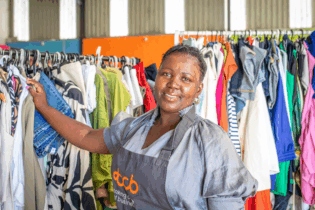The Minister of Water and Environmental Affairs, Ms Edna Molewa arrived in Hyderabad, India on Tuesday to attend the meeting of the eleventh Conference of Parties (COP11) to the Convention on Biological Diversity (CBD).
The South African delegation at the COP includes the Minister of Women, Children and People with Disability, Ms Lulu Xingwana (for gender mainstreaming), Deputy Minister of Water and Environmental Affairs, Ms Rejoice Mabudafhasi and senior officials from government, government entities and the biodiversity sector. The Minister, representing South Africa at the biodiversity meeting, will attend the High Level Segment of the COP which started on Wednesday and ends tomorrow. This meeting of the Conference of the Parties (COP 11) to the Convention on Biological Diversity (CBD), follows on the historic outcomes of 2010 meeting which was held in Nagoya, Japan. At the Nagoya talks, governments adopted a new Strategic Plan for Biodiversity from 2011 to 2020 with 20 Aichi targets, and one new supplementary protocol to the CBD (Nagoya Protocol), the course for halting biodiversity loss by the end of the current decade. The Aichi Biodiversity Targets are implemented under the following Strategic Goals:• Goal A: Address the underlying causes of biodiversity loss by mainstreaming biodiversity across government and society
• Goal B: Reduce the direct pressure on biodiversity and promote sustainable use
• Goal C: Improve the status of biodiversity by safeguarding ecosystem, species and genetic diversity
• Goal D: Enhance the benefits to all from biodiversity and ecosystem services
• Goal E: Enhance implementation through participatory planning, knowledge management and capacity building. As of June 2012 the Convention (CBD) had 193 Parties, with its work anchored on three areas of work, namely the conservation, sustainable use of biological diversity, and the fair and equitable sharing of benefits arising from the utilisation of resources.
According to Molewa, “Given South Africa’s status as a biologically mega-diverse country, its regional importance in Africa, and its prominence in the G77 and China, the CBD COP 11 will provide South Africa with a unique opportunity to raise the profile of its biodiversity sector.” She added that this will be done through strengthening the business case for biodiversity as a cornerstone of sustainable development; powering the green economy and our efforts to adapt to climate change.
South Africa subscribes to the three key objectives the CBD is anchored on and is a signatory to the Convention. Sustainable utilisation of natural resources is at the forefront of South Africa’s approach to development as articulated in the National Strategy for Sustainable Development and other legislative and strategic frameworks. The CBD’s programme of work is organised around thematic programmes of works which set out key issues for consideration, identify potential outputs, and suggest a timetable and means for achieving these objectives. Of strategic importance to South Africa, are the following key issues will be deliberated upon at COP 11:• Status of the Nagoya Protocol on Access to Genetic Resources: South Africa has signed the Protocol on 11 May 2011. South Africa has since initiated the process to ratify the Protocol and is greatly concerned about the slow pace by other countries.
• Implementation of the Strategic Plan for Biodiversity 2011-2020 and progress towards the 20 Aichi Biodiversity Targets
• Financial mechanism (Budgets) and Resource Mobilisation
• Cooperation, outreach and the United Nations Decade on Biodiversity
• Biodiversity and Climate Change and related issues
• Biodiversity and Development
• Marine and Coastal Biodiversity
• Inland Biodiversity
• Biodiversity and Business In view of the South African government’s commitment to a new growth path in the form of a green economy, South Africa will advance positions that support a move towards implementation of economic instruments, including where appropriate, market-based mechanisms for biodiversity conservation.






